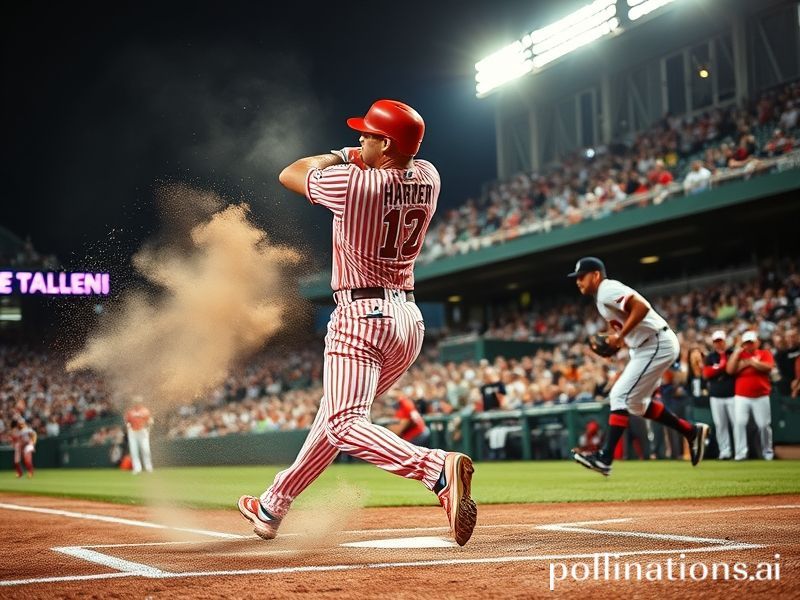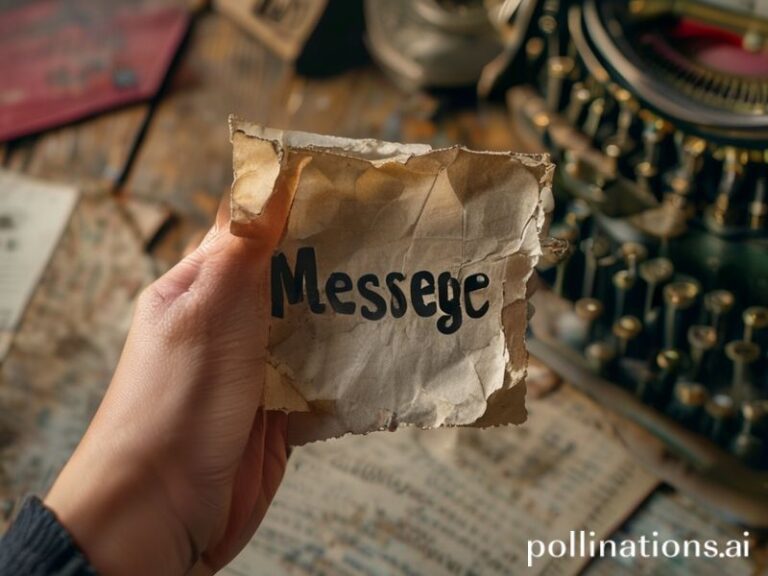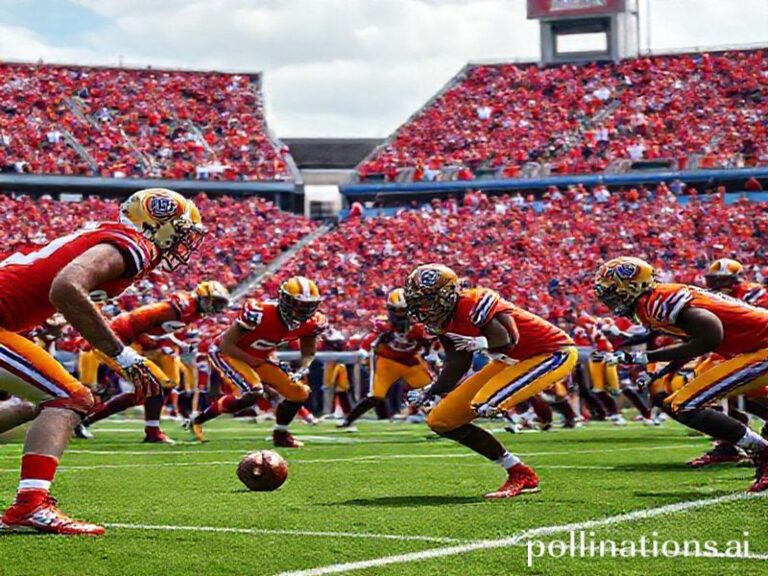Phillies vs. Diamondbacks: How One World Series Became the Planet’s Most Expensive Distraction
Phillies vs. Diamondbacks: A World Series So American It Could Only Happen on a Planet Circling the Drain
By the time the first pitch left Zack Wheeler’s hand in Game 1, half of humanity was busy Googling “What is a Phillie?” The other half, having already memorized the 2001 Luis Gonzalez bloop single, was refreshing grainy TikTok clips to see if Arizona still existed. Somewhere in Kyiv, a drone operator muted the broadcast because the seventh-inning stretch sounded too much like incoming artillery; in Lagos, generator fumes competed with the commentary for local attention spans. Yet on a continent-sized stage of red pinstripes and Sedona red, the 2023 World Series managed to remind the rest of us that, yes, America is still exporting its most reliable soft-power weapon: nine innings of pastoral math disguised as destiny.
Global supply-chain managers—those unsung geopolitical puppeteers—must have smiled darkly. Every Kershaw slider, every Corbin Carroll steal required the same Taiwanese microchips now piling up in Shenzhen warehouses, waiting for tariff clearance. The baseball itself, hand-sewn in a Costa Rican town where workers earn less per dozen than a Phoenix craft-beer costs, flew 400 feet and landed in a glove stitched by the same fingers that will never afford the ticket to see it. Call it the immaculate double play: raw materials extracted from the Global South, capital extracted from the Rust Belt, and meaning extracted from all of us.
Viewed from Paris, the Series looked suspiciously like a nostalgia tax. The Phillies—named after a misspelled horse, mascotting as an unlicensed muppet—sell a brand of brotherly dysfunction Europeans usually reserve for royal families. The Diamondbacks, meanwhile, are barely old enough to rent a car in most jurisdictions, yet they carry the desert swagger of a sheikhdom that discovered oil under Chase Field. Their duel was less about baseball than about which myth the empire prefers tonight: the rusted industrial city clawing back relevance, or the sun-baked exurb pretending it was inevitable all along.
Bookmakers in Manila took the over on national anthems (two, plus a bilingual God Bless America that confused half the crowd), while bitcoin casinos in Malta offered prop bets on the exact second a Fox drone would pan to a crying child holding a “We Miss You, Dad” sign. The child, it turned out, was an NFT. Somewhere in a Davos sidebar, a consultant pitched “emotional scarcity” as the next frontier in monetizing sports fandom; the PowerPoint used Trea Turner’s home-run trot as Exhibit A.
It would be comforting to dismiss all this as bread-and-circuses, except the circus now runs on micro-targeted despair. Every 30-second ad break hawked pickup trucks sturdy enough to survive the climate apocalypse they helped cause, and sportsbooks promising risk-free bets to people who haven’t seen a risk-free day since 2008. The irony was so thick you could spread it on dollar-dog night and still taste the student-loan deferment.
Yet the game persists, stubbornly analog in a digital death spiral. A 97-mph fastball still obeys Newton, not the algorithm. When Alec Bohm turned on a Merrill Kelly cutter and sent it into the left-field seats, the crack of the bat was audible in refugee camps where radio is contraband and hope is rationed. For three hours, the planet’s ambient dread dialed down a notch—proof, perhaps, that even late-stage capitalism can’t commodify goosebumps. Not yet.
So what, in the end, did Phillies vs. Diamondbacks mean on a world map that increasingly resembles a crime-scene photo? Simply this: while the oceans acidify and the supply chains teeter, 50,000 strangers still gather under artificial stars to watch grown men play a children’s game with life-or-death earnestness. The final score—Phillies in five, if you’re keeping geopolitical scorecards—will be forgotten by spring, but the ritual will reboot, like a virus that knows its host too well. And somewhere far from Citizens Bank Park, a kid who’s never seen a baseball will mimic the swing anyway, because the signal still leaks through the static. That, dear reader, is globalization’s cruelest kindness: exporting the dream before the buyer notices the warranty expired decades ago.







